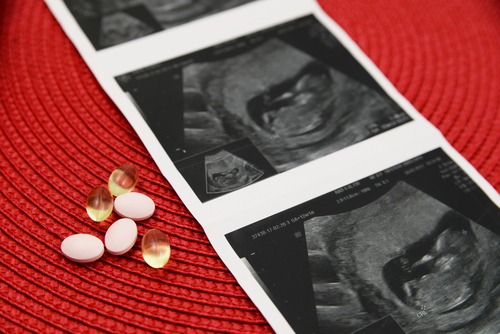
When you become pregnant, the nutrients in the food that you’re eating and the vitamins you are taking will not only go to your system, but also to the baby in your womb. Therefore, you need to be careful about what goes inside your body when you’re pregnant. A healthy diet is always an important part of your pregnancy, but sometimes, pregnant women are having a hard time sticking to a healthy diet because they’re experiencing some symptoms, especially on their first trimester, such as food aversions, vomiting, and nausea.
That is why it’s also important for you to take some prenatal vitamins, like those found in Ritual, during and after your pregnancy, in order to have the sufficient amount of vitamins and minerals needed by you and your baby.
Prenatal Vitamins

In order to provide the nutrients required for the development of your baby, your OB-GYN, midwife, or doctor will recommend you to take prenatal vitamins as part of your prenatal care, other than having a healthy diet and exercising after giving birth. These supplements contain a lot of vitamins and minerals, such as calcium, folic acid, DHA, and iron. These should be taken by women who are trying to conceive, for pregnant women, and mothers who are breastfeeding since these can give additional nutrients while breastfeeding.
When you are trying to get pregnant, you may start taking prenatal vitamins three months before you’re trying to conceive so that any potential deficiencies in vitamins and minerals can be corrected. It’s also important to ask your doctor or OB-GYN about the best time you can take prenatal vitamins when you’re trying to conceive.
What Prenatal Vitamins Do to Your Body:
If you’re wondering about how the vitamins and minerals inside prenatal vitamins act in your body, here’s what you need to know:
1. Calcium will help build strong bones for both you and your baby
Since your baby will be using calcium in order to grow their own bones, the density of your own bones might lose and become weak during pregnancy, so enough calcium is important for you to take, which is included in the vitamins and minerals provided by prenatal vitamins. The calcium needed by your body when you’re pregnant doesn’t increase; it just stays at 1000 milligrams per day, just like when you weren’t pregnant. It can also help the muscles to contract, and maintain hormones and healthy nerves.
However, a lot of prenatal vitamins don’t meet the overall calcium needs of pregnant women because they only have small amounts of calcium. That is why it is still recommended for you to eat calcium-rich foods, such as fish and dairy products.
2. Iron will boost the production of your red blood cells
Even if you aren’t pregnant, enough iron is needed by your body to produce red blood cells, which carry oxygen all throughout a person’s body. If you lack iron in your system, you might have anemia, which is a common blood condition, especially for pregnant women because they need more iron intake every day.
Iron is needed to produce more red blood cells not just for you, but for your baby as well. Prenatal vitamins also contain iron that can supplement your iron needs. This will prepare you for blood loss after you give birth, and will also support in making the placenta healthy. Your doctor will monitor your iron levels to make sure that you don’t have iron deficiency.
3. Folate will prevent any birth defects
This nutrient, also known as vitamin B9 or folic acid in prenatal vitamins, will help prevent any risk of birth defects related to the spinal cord and brain during pregnancy. These defects can happen right before discovering that you’re pregnant, which is why doctors will recommend you to take prenatal vitamins before you try to conceive.
It also plays a role in tissue and cell growth, and enhances brain function. Folic acid can also be found in fortified cereals and breads, and on green, leafy vegetables.
4. DHA will help in the development of your baby’s nervous system and brain
Most prenatal vitamins have DHA or Omega-3 fatty acids, which is important for the development of your baby’s brain and nervous system. Fish is the primary source of this nutrient; however, not all women like eating fish when they’re pregnant, that is why prenatal vitamins are prescribed to get enough healthy fats that you and your baby need.
Conclusion
Prenatal vitamins can supplement the needed vitamins and minerals for both you and your baby, though they are not substitutes for an optimal diet. You should always ask your doctor or OB-GYN before taking prenatal vitamins and other supplements so you can be sure that you will get the best care for you and your baby.



























